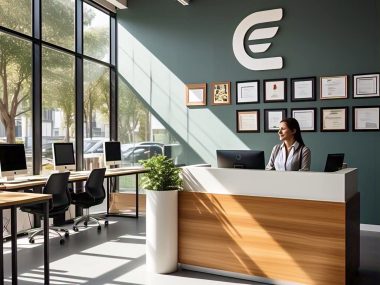
Introduction
In today’s highly competitive job market, work for experience has become an essential strategy for individuals looking to build successful careers. Employers no longer focus solely on academic qualifications; they seek candidates who have hands-on experience in their field. Whether you are a student, a recent graduate, or someone looking to change careers, gaining relevant work experience can give you a competitive edge.
When you work for experience, you develop valuable skills, expand your professional network, and increase your employability. The benefits extend beyond just securing a job; experience prepares you for long-term career success. In this article, we will explore the importance of work for experience, different ways to gain it, and how it can shape your professional journey.
The Importance of Work for Experience
1. Bridges the Gap Between Education and Employment
One of the biggest challenges job seekers face is the gap between theoretical knowledge and practical application. Many graduates struggle to find jobs because they lack real-world experience. When you work for experience, you gain exposure to industry standards, workplace dynamics, and practical problem-solving, making you a more attractive candidate to employers.
2. Enhances Skill Development
Employers value skills that are developed through hands-on work. By choosing to work for experience, you improve soft skills like communication, teamwork, and adaptability, as well as technical skills relevant to your industry. Practical experience helps you apply theoretical concepts in real-world situations, strengthening your ability to perform in a professional setting.
3. Increases Employability and Job Market Value
Recruiters prefer candidates who have demonstrated their ability to handle real job responsibilities. When you work for experience, you make yourself more employable because you have already proven your ability to adapt and succeed in a professional environment. Work experience increases your chances of landing a job faster and securing better career opportunities.
4. Builds Confidence and Professionalism
Experience fosters confidence. The more you engage in real-world work, the more comfortable you become in handling tasks, managing deadlines, and interacting with colleagues and clients. Confidence is an essential trait in any professional setting, and work for experience helps you develop it naturally.
5. Expands Your Professional Network
Networking plays a crucial role in career growth. When you work for experience, you interact with professionals in your industry who can offer mentorship, career advice, and job referrals. These connections can be invaluable when looking for job opportunities or advancing in your career.
Ways to Gain Work Experience
1. Internships and Apprenticeships
Internships and apprenticeships are some of the best ways to work for experience while learning on the job. Many companies offer internship programs that allow students and recent graduates to gain exposure to real work environments. Internships often lead to full-time job offers, making them a great way to start your career.
2. Volunteering and Community Work
Volunteering is an excellent way to gain experience while contributing to a cause. Many nonprofit organizations and community projects offer opportunities to develop skills in leadership, project management, and teamwork. Employers appreciate candidates who have a history of volunteer work, as it demonstrates initiative and a willingness to learn.
3. Freelancing and Part-Time Jobs
Freelancing allows you to work for experience while earning money. Websites like Upwork, Fiverr, and Freelancer offer opportunities to work on projects related to writing, graphic design, web development, marketing, and more. Similarly, part-time jobs in your field can help you gain relevant experience and strengthen your resume.
4. Personal Projects and Online Portfolios
If you struggle to find formal work experience, consider working on personal projects. For instance, if you are an aspiring web developer, build websites for small businesses or create an online portfolio showcasing your skills. Similarly, writers can start blogs, and graphic designers can create sample work to attract potential clients or employers.
5. Job Shadowing and Mentorship Programs
Job shadowing involves observing professionals in your field to understand their daily tasks and responsibilities. Many organizations allow students and job seekers to shadow employees for a day or even a few weeks. This experience provides insights into industry expectations and helps you determine whether a specific career path is right for you.
6. Online Courses and Certifications
With the rise of digital learning platforms like Coursera, Udemy, and LinkedIn Learning, you can gain industry-recognized certifications. While online courses alone do not replace hands-on experience, they equip you with practical knowledge that can be applied in real-world work situations. Many courses also offer project-based learning, allowing you to work for experience in a structured manner.

The Long-Term Benefits of Work for Experience
1. Faster Career Growth and Promotion Opportunities
Employees with prior experience tend to climb the corporate ladder faster than those without. When you work for experience, you build a strong foundation of skills and knowledge, making you a prime candidate for promotions and leadership roles. Employers often prefer to promote individuals who have hands-on experience rather than those who are new to the field.
2. Competitive Advantage Over Other Job Seekers
A strong resume with relevant experience gives you an advantage over other candidates. Employers often receive hundreds of applications for a single job opening. If your resume demonstrates real-world experience, you are more likely to get shortlisted for interviews.
3. Higher Earning Potential
People with relevant work experience often command higher salaries. Companies are willing to pay more for employees who require less training and can contribute immediately. By choosing to work for experience, you increase your value in the job market and improve your earning potential.
4. Greater Career Flexibility
Experience opens doors to different career paths. If you decide to switch careers, having prior work experience can make the transition smoother. Many transferable skills, such as communication, problem-solving, and project management, can be applied across various industries.
5. A Stronger Resume and Professional Portfolio
Having work experience makes your resume stand out. It shows potential employers that you have applied your skills in real-world settings. Additionally, a strong portfolio with documented work experience, client testimonials, or successful projects can make a significant difference in job applications.
Conclusion
The decision to work for experience is one of the most valuable investments in your career. Whether you are a student, a recent graduate, or an individual looking to switch careers, gaining practical experience enhances your skills, increases your employability, and strengthens your professional network.
Through internships, freelancing, volunteering, and job shadowing, you can gain hands-on experience that prepares you for long-term career success. Employers value candidates who have demonstrated their abilities in real-world settings, making experience a critical factor in securing job opportunities.
By prioritizing work for experience, you set yourself on a path to career growth, better job prospects, and financial stability. The more experience you gain, the more confident and prepared you become for future opportunities. Start building your work experience today and take control of your professional journey.




